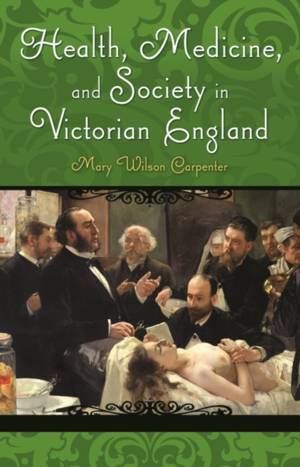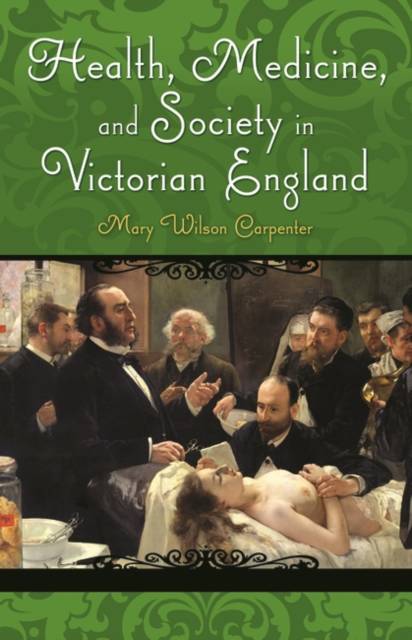
- Retrait gratuit dans votre magasin Club
- 7.000.000 titres dans notre catalogue
- Payer en toute sécurité
- Toujours un magasin près de chez vous
- Retrait gratuit dans votre magasin Club
- 7.000.0000 titres dans notre catalogue
- Payer en toute sécurité
- Toujours un magasin près de chez vous
Description
This work offers a social and cultural history of Victorian medicine "from below," as experienced by ordinary practitioners and patients, often described in their own words.
Health, Medicine, and Society in Victorian England is a human story of medicine in 19th-century England. It's a story of how a diverse and competitive assortment of apothecary apprentices, surgeons who learned their trade by doing, and physicians schooled in ancient Greek medicine but lacking in any actual experience with patients, was gradually formed into a medical profession with uniform standards of education and qualification. It's a story of how medical men struggled with "new" diseases such as cholera and "old" ones known for centuries, such as tuberculosis, syphilis, and smallpox, largely in the absence of effective drugs or treatments, and so were often reduced to standing helplessly by as their patients died. It's a story of how surgeons, empowered first by anesthesia and later by antiseptic technique, vastly expanded the field of surgery--sometimes with major benefits for patients, but sometimes with disastrous results. Above all, it's a story of how gender and class ideology dominated both practitioners and patients. Women were stridently excluded from medical education and practice of any kind until the end of the century, but were hailed into the new field of nursing, which was felt to be "natural" to the gentler sex. Only the poor were admitted to hospitals until the last decades of the century, and while they often received compassionate care, they were also treated as "cases" of disease and experimented upon with freedom. Yet because medical knowledge was growing by leaps and bounds, Victorians were fascinated with this new field and wrote novels, poetry, essays, letters, and diaries, which illuminate their experience of health and disease for us. Newly developed techniques of photography, as well as improved print illustrations, help us to picture this fascinating world. This vivid history of Victorian medicine is enriched with many literary examples and visual images drawn from the period.Spécifications
Parties prenantes
- Auteur(s) :
- Editeur:
Contenu
- Nombre de pages :
- 236
- Langue:
- Anglais
- Collection :
Caractéristiques
- EAN:
- 9780275989521
- Date de parution :
- 01-11-09
- Format:
- Livre relié
- Format numérique:
- Genaaid
- Dimensions :
- 157 mm x 236 mm
- Poids :
- 521 g

Les avis
Nous publions uniquement les avis qui respectent les conditions requises. Consultez nos conditions pour les avis.






